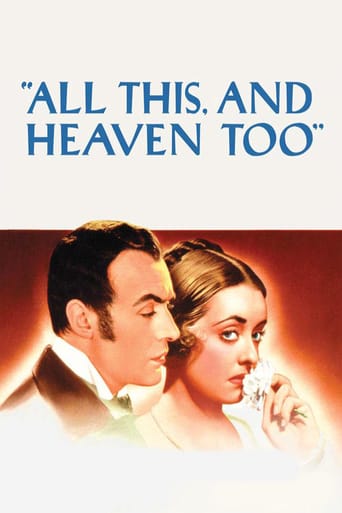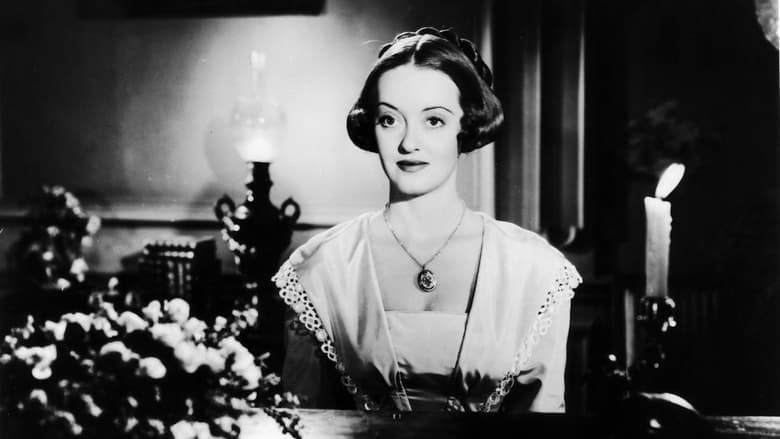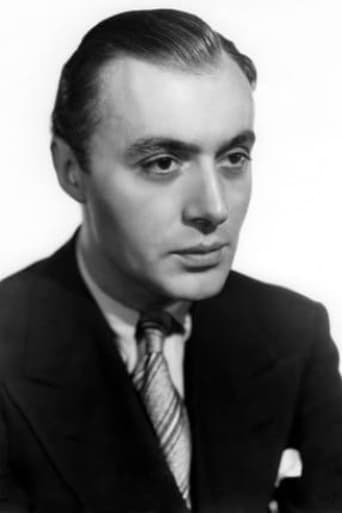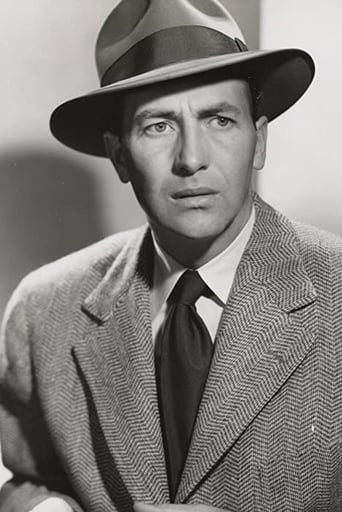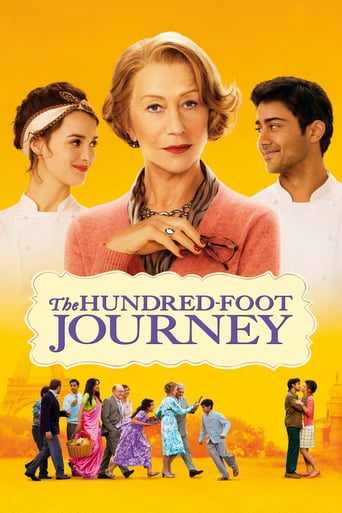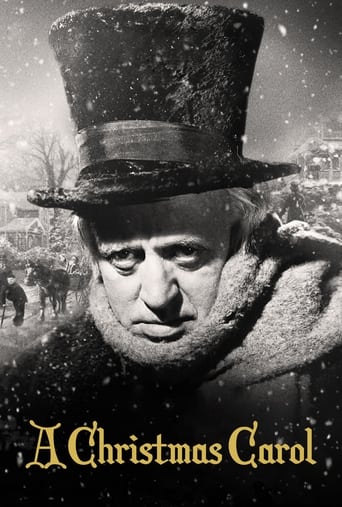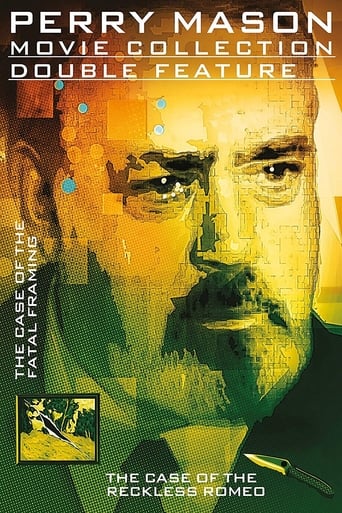All This, and Heaven Too (1940)
When lovely and virtuous governess Henriette Deluzy comes to educate the children of the debonair Duc de Praslin, a royal subject to King Louis-Philippe and the husband of the volatile and obsessive Duchesse de Praslin, she instantly incurs the wrath of her mistress, who is insanely jealous of anyone who comes near her estranged husband. Though she saves the duchess's little son from a near-death illness and warms herself to all the children, she is nevertheless dismissed by the vengeful duchess. Meanwhile, the attraction between the duke and Henriette continues to grow, eventually leading to tragedy.
Watch Trailer
Cast


Similar titles
Reviews
It's no definitive masterpiece but it's damn close.
Did you people see the same film I saw?
This is a tender, generous movie that likes its characters and presents them as real people, full of flaws and strengths.
Although I seem to have had higher expectations than I thought, the movie is super entertaining.
I quote this line from Pierre's worthy advice for Henriette to leave the house before it's too late.Unfortunately she declined the advice and insisted on staying bringing catastrophic incidents on the whole family including the man she loved.I think that Henriette didn't really love Le Duc but she only admired his character as being decent gentle and a kind father.She tells Pierre that Le Duc is a fine gentleman. If it were a real sincere love Henriette would have left the house as soon as possible saving the children and the man she loved the tragic incidents that happened later Charles Boyer's natural gift of subtle romantic performance remains insuperable.He stole the scenes whenever he appeared on the screen and the scene of his dying was really a masterpiece.I wonder why he is underappreciated and one can rarely find critics discussing or analysing his work.In fact the whole atmosphere of the movie is enchanting and captivating.I must admit that I am caught in the spell of the movie especially Boyer's magic performance and I don't even wish to escape.
I have read the book and seen this movie many times. Potentially, Bette Davis was an inspired choice for the mademoiselle. Much is being made that Bette is playing against type, a "quiet gentle" character, but she's gone there before. I love this movie cause it gives me lots of Charles Boyer who practically shimmers in his romantic longing.Boyer being such a natural on screen only brings out the mannered and almost lazy approach of B. Davis. I've seen her speak naturally before without the clipping she developed and the hand which appears glued to her torso and folded in the most unappealing prissy way. Why oh why couldn't the director or Davis herself direct her properly for this role. The sour facial expressions (like she just drank a gallon of grapefruit juice) are annoying as heck.Despite these issues the potential was there. When she lets go of her acting ticks her luminous eyes and common sense manner work well as the intelligent governess. As it is, I overlook much of her and concentrate on the brilliant Charles Boyer and wonderful Barbara O'Neil who is right on target as the hysterical wife. In the book, Fanny De Praslin is even worse.
Although a fan of Bette Davis', and of old movies in general, somehow I had never seen this film. What a treat it was to finally see it.It is an extremely well done period piece. The story stems from a new French teacher who has a scandal in her past, which the are aware of. They attempt to humiliate the new teacher (Davis), but she instead tells them her story. And it's a humdinger.I've never been a particular fan of Charles Boyer, but he is excellent here as the patriarch of the family to which Bette Davis (in a bravura performance) becomes governess. The matriarch of the family is clearly mentally ill and manipulative. I couldn't place her at first, and then realized that she was Scarlett O'Hara's mother in GWTW. She (Barbara O'Neill) is excellent here, and was nominated for the best supporting actress Oscar. Harry Davenport is one of my favorite character actors, but I don't think his servant role is right for him here, though key to the story line.The setting for the scenes on All Hallow's Eve are ethereal and as spooky as you'll ever see.Although the course of the plot is somewhat predictable -- easy to guess that Boyer will kill his wife -- this is one film where the question in your mind is what specific event will lead him to do so, and that sustains the suspense. The outcome of the murder, however, surprised me! Interestingly, this is based on a true story of an event that helped lead to the 1848 Revolution in France. Read the Wikipedia summary to learn that it's possible the real life story had a different ending that we would probably think was too fantastic if it had been part of this film! It's extremely rare that I give a film a "9", but this one is well deserving. Highest recommendation!A very good summary of the real life of Bette's character can be found at findagrave.com/cgi-bin/fg.cgi?page=gr&GRid=37793248. A summary of the real Duke's life can be found on Wikipedia.
When students at a 19th century "School for Young Ladies" begin gossiping about the scandalous past of new French teacher Bette Davis (as as Henriette Deluzy-Desportes), she decides to tell them the whole "true story" about what really happened In flashback, lonely Mademoiselle Davis sails from England to France, where she will apply, and be accepted, as governess to the four children of Charles Boyer and Barbara O'Neil (as the Duc and Duchesse de Praslin) - tearful June Lockhart (as Isabelle), precocious Virginia Weidler (as Louise), cute Ann Todd (as Berthe), and sickly Richard Nichols (as Reynald).Davis immediately connects with the beautiful, love-starved children, who are suffering under the apparent dissolution of their parents' marriage. Monsieur Boyer has fallen quite obviously out of love with Madame O'Neil, which has made his wife unstable. Alternately arguing and sobbing, O'Neil loves Boyer blindly, and sees Davis as a threat. As you might imagine, she is correct Watching the restrained relationship develop between Davis and Boyer, while O'Neil becomes more and more miserable, is great fun. The story, based on Rachel Field's hit novel, succeeds in keeping the passion subdued.Magnificently mounted by the Warner Bros. studio, "All This, and Heaven Too" made the "Academy Awards" top ten, and scored additional nominations for Ernest Haller's cinematography and "Supporting Actress" (O'Neil). Davis was nominated for "Best Actress" in the more recently released "The Letter" (1940), or she would have been nominated for this performance. She was obviously on a roll, and capable of creating incredibly distinct characters. Boyer is at his best. Mr. Litvak's direction of actors and sets is smooth, staid and stately, with the "separation of bedrooms" sequence beautifully realized.********* All This, and Heaven Too (7/4/40) Anatole Litvak ~ Bette Davis, Charles Boyer, Barbara O'Neil, June Lockhart

